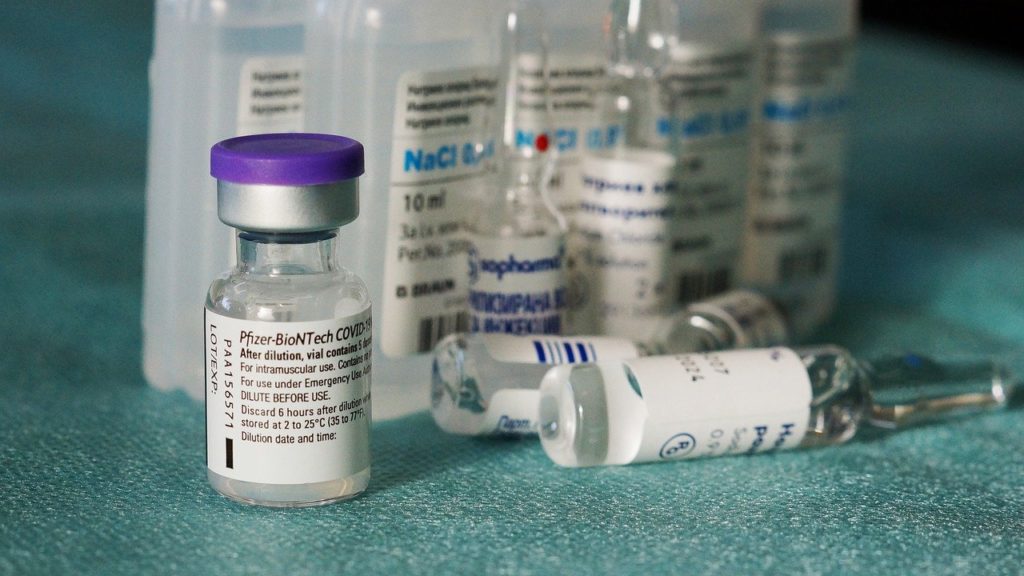Two shots are insufficient, but three doses of the Covid-19 vaccine developed by Pfizer and BioNTech "effectively neutralise" the Omicron coronavirus variant, the companies stated on the basis of their own laboratory tests.
According to Pfizer/BioNTech, three shots provide as much protection against the Omciron variant as two shots do against other variants.
"Fully vaccinating as many people as possible with the first two dose series and a booster, as quickly as possible, remains the best way to prevent the spread of Covid-19," said Pfizer CEO Albert Bourla on Twitter on Wednesday.
"In our fight against this disease, we will continue to follow the science," he said, adding that the data is preliminary and further research is underway.
Just two doses of the vaccine resulted in a significantly lower number of neutralising antibodies, but a booster shot of their vaccine increased those antibodies by a factor of 25, meaning that people have 25 times more antibodies in their bodies after three shots than after two.
'Important incentive to get booster'
"It does not really surprise me that you achieve this effect with a third dose," virologist Steven Van Gucht told Het Laatste Nieuws.
"The higher the antibodies, the greater the chance that a particle of those substances will continue to work and thus neutralise Omicron," he added. "Again, an important incentive to get the booster dose."
However, he also pointed out that these remain laboratory results, and not real-life data. "How many infections there are in fully vaccinated people and what the difference is with non-vaccinated people is difficult to determine in the lab."
People's immune system has two elements to protect them: antibodies and T-cells, professor Johan Neyts (KU Leuven) explained on VTM News
"Antibodies go in on the spike protein of the virus and prevent it from entering the cells - of your nose or your lungs, for example - while the T-cells go in and clean up the already infected cells," he said.
Related News
- 'Fewer antibodies': Brussels pushes residents to get flu shot this winter
- 3 in 10 vaccinated people aren’t convinced about booster shots
- WHO on Delta and Omicron: “We are in the business of stabilizing a pandemic”
The vaccination then "trains" those T-cells to continue to do their work, research from other variants has shown. "We expect the effect of those T-cells to remain reasonably intact, also against Omicron, but the effect of the antibodies decreases."
"That is why the third dose is important," Neyts stressed, comparing it to a student studying a course once, twice or three times. "In the latter case, that student becomes more familiar with the material and remembers it better. Our immune system also has a memory."
Additionally, in those who received two doses of the Pfizer vaccine and then contracted a natural infection with the Delta variant, the antibody levels were also booster, show the results of a South African study on Tuesday.
"Such an infection after two doses of the vaccine can be compared to a third vaccine dose. It provides enough antibodies to reasonably neutralise the Omicron variant," Neyts said.
Updated vaccines
Researchers from the pharmaceutical companies also looked at how the Omicron variant is structured and what makes it different from the Delta variant, which is currently the most common.
Based on this, they are assuming that Pfizer's vaccine can prevent people from becoming severely ill from the Omicron variant, even if they have only received two shots.
They added that, if needed, they can also provide a modified vaccine against the Omicron variant of the coronavirus from March 2022.
"It is good that there will be a modified version of the vaccine based on the Omicron variant," Neyts said. "The original vaccine was developed based on the Wuhan strain back in early 2020, long before there was any mention of Delta or Omicron. It is now time to adapt it."

